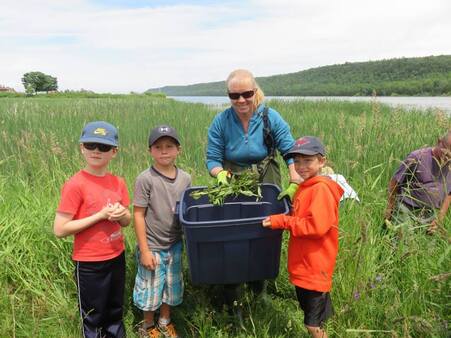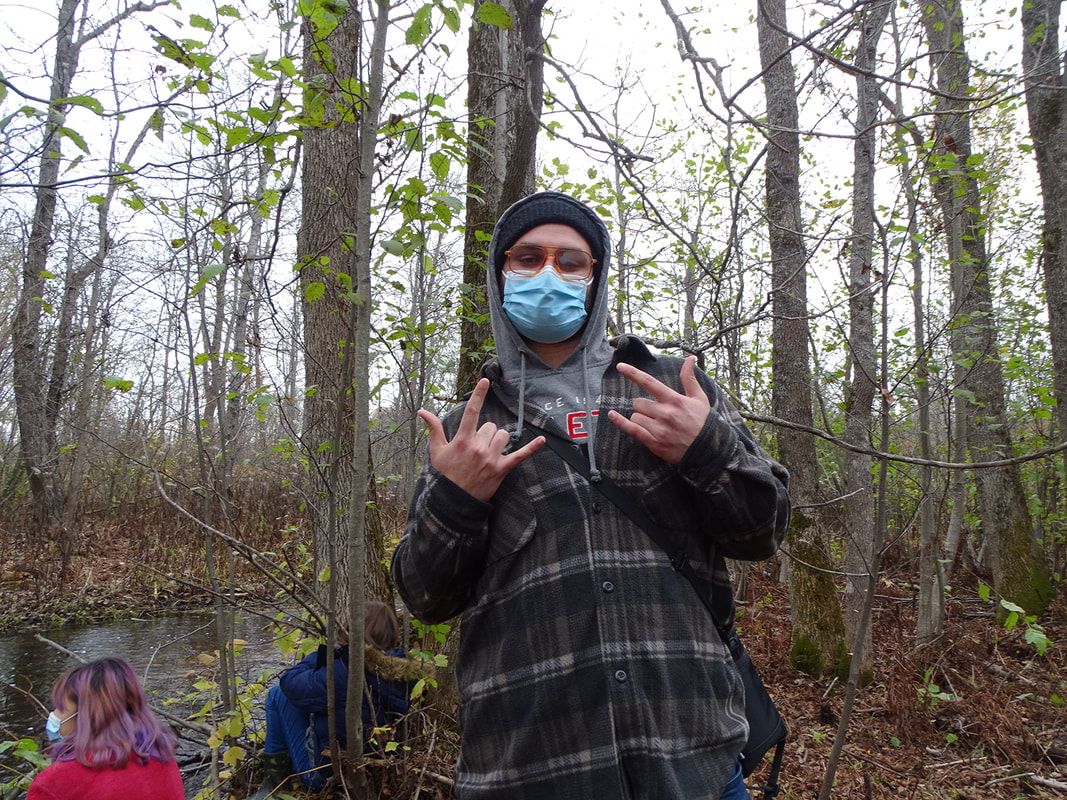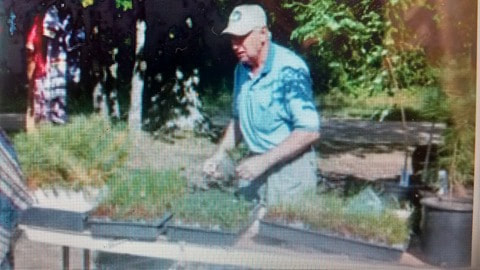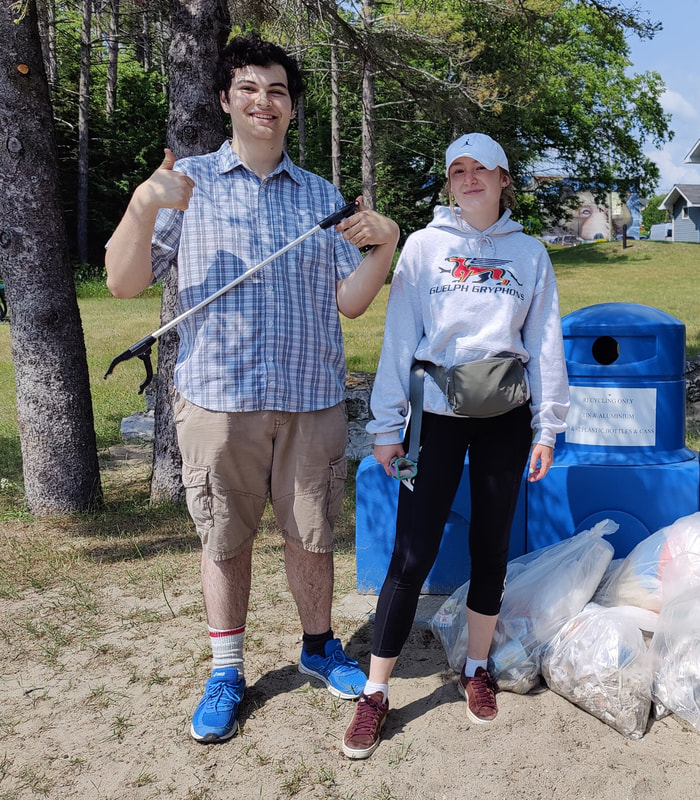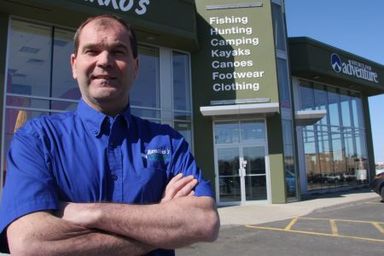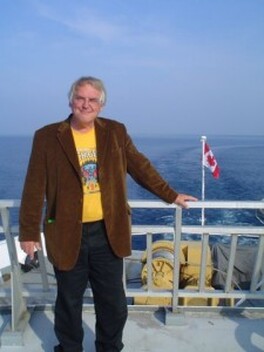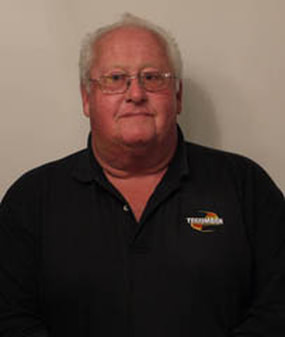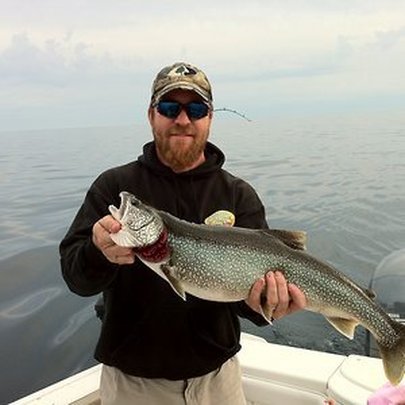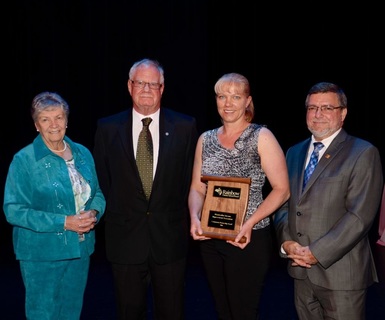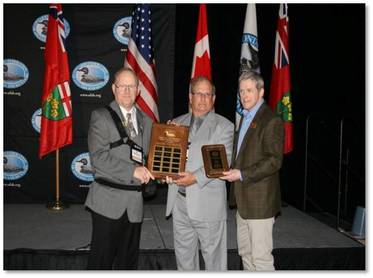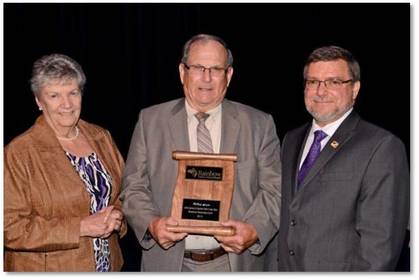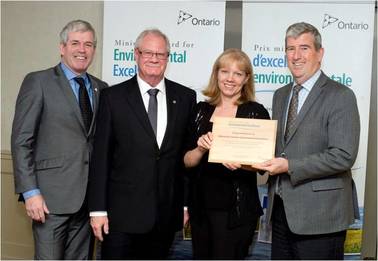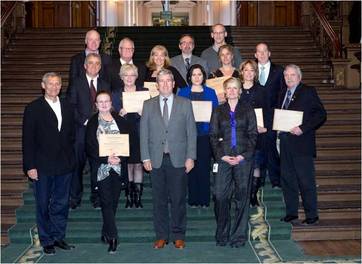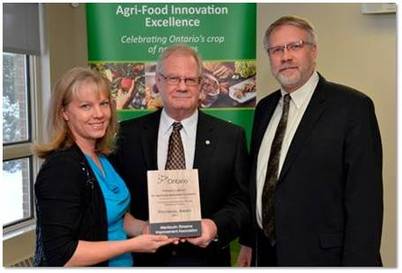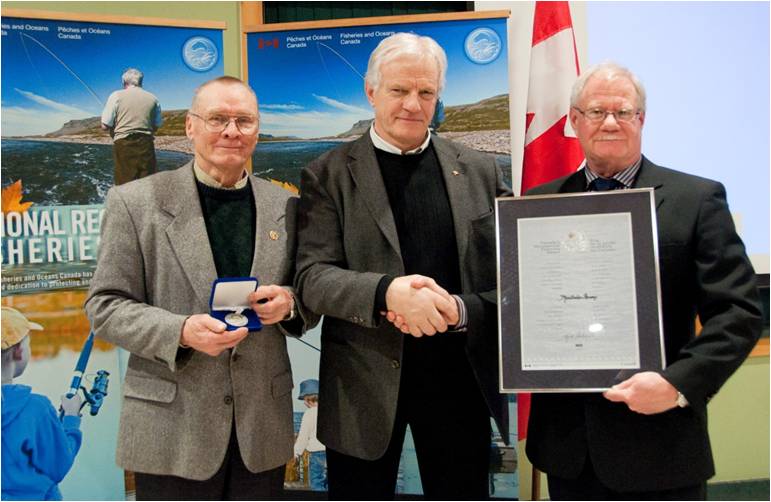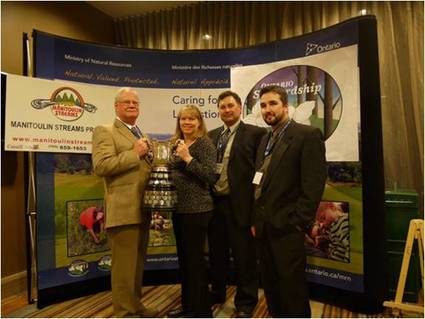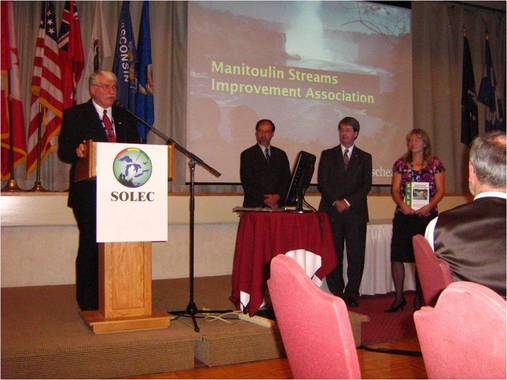ABOUT US
PROTECTING AND RESTORING MANITOULIN ISLANDS RIVERS AND STREAMS SINCE 2001
On May 7, 2007 Manitoulin Steams became an incorporated not for profit.
On Dec 17, 2010 Manitoulin Streams became a registered charitable organization.
On May 7, 2007 Manitoulin Steams became an incorporated not for profit.
On Dec 17, 2010 Manitoulin Streams became a registered charitable organization.
Angling Trade Fair 2024
Try Our New Outdoor Tourism and Angling Map!
Why Rehabilitate?
-
The Problem
-
The Solution
-
The Benefits
<
>
|
All over the Great Lakes popular spawning areas for a variety of fish species including salmon and trout have been destroyed and water quality has suffered due to human and livestock contamination. On Manitoulin Island a large number of streams, rivers and creeks have been devastated by past logging activities, improper land use practices, unrestricted livestock access and fluctuating water levels. The results of this activity are erosion, sediment discharge and loss of the riparian area.
|
|
|
|
35 million humans directly depend on the Great Lakes for drinking water. Without clean water many organisms cannot thrive or exist.
Community Stewardship
This initiative will promote natural resource sustainability, educate the public and build the capacity within the community to better understand and manage our aquatic resources. We bring together a wide variety of community members in the rehabilitation efforts. College and University students will use the sites for valuable training. Grade school students are given tours of the sites. High school students enjoy tours as well as gaining volunteer hours doing things such as tree planting. Stewardship Committees and Lake Associations are involved in rehab work and restocking efforts.
Economic Spinoff
Economic spin offs will include enlisting local businesses for materials and labour for the projects, improving the health of humans, livestock and wildlife and long term economic sustainability such as angling tourism. Tourism and the economy in this area have already suffered due to the damage done to the rivers fish population.
Rehabilitation efforts will prevent major issues that could result from not taking action. For example, life-robbing impacts of algal blooms, contaminated water, further depletion of the fisheries, lost recreational/tourism opportunities and lost jobs as well as revenue.
Community Stewardship
This initiative will promote natural resource sustainability, educate the public and build the capacity within the community to better understand and manage our aquatic resources. We bring together a wide variety of community members in the rehabilitation efforts. College and University students will use the sites for valuable training. Grade school students are given tours of the sites. High school students enjoy tours as well as gaining volunteer hours doing things such as tree planting. Stewardship Committees and Lake Associations are involved in rehab work and restocking efforts.
Economic Spinoff
Economic spin offs will include enlisting local businesses for materials and labour for the projects, improving the health of humans, livestock and wildlife and long term economic sustainability such as angling tourism. Tourism and the economy in this area have already suffered due to the damage done to the rivers fish population.
Rehabilitation efforts will prevent major issues that could result from not taking action. For example, life-robbing impacts of algal blooms, contaminated water, further depletion of the fisheries, lost recreational/tourism opportunities and lost jobs as well as revenue.
Staff
|
Project Coordinator – Seija Deschenes is currently employed through Manitoulin Streams as the Project Coordinator and has been in the position since January 2007. She graduated from Laurentian University with an Honors B.Sc. in Biology and has been working in the field of science for 24 years. She has worked for a variety of government and non-profit organizations such as the Ministry of Natural Resources, and Department of Fisheries and Oceans, Cooperative Freshwater Ecology Unit and Ducks Unlimited conducting fish and wildlife studies; invertebrate and water quality surveys; as well as restoration and rehabilitation projects. To date as the Project Coordinator, she has been able to leverage close to $5.0 million dollars in committed funds and in-kind support from various partners.
|
|
Environmental Technologist - Liam Campbell - Started in 2018 with Manitoulin Streams. Liam was born and raised on Manitoulin Island. He earned his BSc. in Environmental Science from Carleton University in 2018 and graduated with honours from the Algonquin College, Environmental Management and Assessment Post Graduate program in 2020. Liam has spent many years volunteering with wildlife rescues and conservancy groups and is an avid ornithologist and nature lover. In helping with the overall operations of Manitoulin Streams, Liam is now bringing youthful expertise to the work that is being undertaken by the organization.
|
|
Volunteer Nursery Manager- Ken Pearce
Ken was born in Shropshire, England. His father was a timber and builders merchant. He started his first tree nursery at the age of 14 yrs old, just for fun. In 1997 he came to the island from Stoney Creek, and purchased a beautiful 3 acre treed lot. In 1998 he designed his PWF all wood home and was very proud to be asked by Bob Florean to help form what became MASC. When retired at age 65, he and his wife decided to open a B&B in Providence Bay called Cedarwood Lodge. With the amalgamation of MASC and Manitoulin Streams, Ken continues his dedication to the organization. To date, Ken still puts much energy into growing trees in his greenhouse to raise money for stewardship efforts. He comes to many events to help sell trees, and is by far, the best tree salesman around. |
Board Members
|
Chair – Ted Williamson Ted is a landowner along the Manitou River (sites M48 through M52) who’s high priority sites were scheduled for rehabilitation work in the summer of 2005. Ted was born and raised on Manitoulin Island where he spends most of his free time. As a senior maintenance supervisor with Inco, Ted has worked on mine closure and rehabilitation projects and understands the value rehabilitation projects have on the environmental health of communities as a whole. Ted became the Chair of Manitoulin Streams in the fall of 2011. |
|
Vice Chair – Brian Rammako
Brian had been involved with Manitoulin Area Stewardship Council for many years, and now is a vital part of Manitoulin Stream's board. He is a successful business owner of Rammako's in Sudbury and owns a home and land on Manitoulin. Brian has been a welcomed energy brining ideas such as the last successful "Jackets & Jeans" gala fundraiser held in June 2016, which was held annually until COVID when he again helped us pivot into our Father's Day Gourmet Food Box Fundraiser. |
|
Treasurer – Algis Tribinevicius
Al Tribinevicius lives on a farm in Sandfield township. Two intermittent streams on the property feed into the Manitou River, and before the land was cleared, undoubtedly were spawning streams running cool water shaded and cooled by majestic timbers. Al taught elementary school for 37 years, served on municipal council for 11 years, keeps bees, and is a licensed radio operator at station VE3AIB. Al believes that we must be stewards of the land. He is proud to be a member of Manitoulin Streams from its inception a number of years ago. |
|
Board Member – Delmer Fields Delmer has been a Manitoulin Streams Board Treasurer since 2009. He is a life-long committed volunteer and community member in the Assiginack area and is a retired mechanic. Delmer and his wife Leslie are well known for many community events such as the annual Assiginack easter egg hunt. |
|
Secretary– Elsa Lindfield Elsa is a new member to Manitoulin Streams. She was born and raised in Sudbury. Her parents immigrated from Finland and instilled a love for the outdoors; including hunting, fishing and hiking. It was a way of life from a young age. For the last 12 years, she is a business owner working as a Medical Billing and Coding specialist. As a long-time volunteer with various youth sports programs, she thought it was time to expand to share her passion for nature and conservation. |
Board Member – Neil Debassige
Neil was born on Manitoulin Island and raised on the M’Chigeeng First Nation. Neil attended McMaster University in Hamilton where he received a Bachelor of Science degree in 1994 and then attended Brock University where he received a Bachelor of Education degree the following year.
Neil returned home in the fall of 1995 to accept a teaching position at Lakeview School where he taught Math, Science and Physical Education to grades 6, 7, and 8. After teaching for 5 years he started his Masters Degree in Educational Leadership with San Diego State University which he completed in 2004. From 1999 – 2003 Neil accepted the high school Principal-ship position at Francine J. Wesley Secondary School in the fly-in First Nation community of Kashechewan, on the coast of James Bay. His return home in 2003 took him to another Principal Position at Wasse-Abin High School in Wikwemikong. The Principal position at Lakeview was then offered and accepted in 2004. Neil was the Principal/Education Director in his home community of M’Chigeeng from 2006 until 2013.
Both Neil and wife, Dianne, own and operate a small tourist based cottage rental business and fishing charter operation called Island Sunrise Cottages Fishing and Hunting Outfitters. Neil is also the owner and host of an upcoming outdoor program to be aired on WildTV (Fall 2015) called Fuel the Fire TV. It is a 13 episode series that tries to capture some of the beauty that can be experienced in the outdoors.
Neil is an avid sports enthusiast, proud parent of two beautiful girls, and outdoorsman. Neil has made time to volunteer and has coached many different sports teams from Tyke to Jr. A hockey, elementary and high school basketball, volleyball and soccer. He enjoys fishing, hunting, snowboarding and everything outdoors.
Neil was born on Manitoulin Island and raised on the M’Chigeeng First Nation. Neil attended McMaster University in Hamilton where he received a Bachelor of Science degree in 1994 and then attended Brock University where he received a Bachelor of Education degree the following year.
Neil returned home in the fall of 1995 to accept a teaching position at Lakeview School where he taught Math, Science and Physical Education to grades 6, 7, and 8. After teaching for 5 years he started his Masters Degree in Educational Leadership with San Diego State University which he completed in 2004. From 1999 – 2003 Neil accepted the high school Principal-ship position at Francine J. Wesley Secondary School in the fly-in First Nation community of Kashechewan, on the coast of James Bay. His return home in 2003 took him to another Principal Position at Wasse-Abin High School in Wikwemikong. The Principal position at Lakeview was then offered and accepted in 2004. Neil was the Principal/Education Director in his home community of M’Chigeeng from 2006 until 2013.
Both Neil and wife, Dianne, own and operate a small tourist based cottage rental business and fishing charter operation called Island Sunrise Cottages Fishing and Hunting Outfitters. Neil is also the owner and host of an upcoming outdoor program to be aired on WildTV (Fall 2015) called Fuel the Fire TV. It is a 13 episode series that tries to capture some of the beauty that can be experienced in the outdoors.
Neil is an avid sports enthusiast, proud parent of two beautiful girls, and outdoorsman. Neil has made time to volunteer and has coached many different sports teams from Tyke to Jr. A hockey, elementary and high school basketball, volleyball and soccer. He enjoys fishing, hunting, snowboarding and everything outdoors.
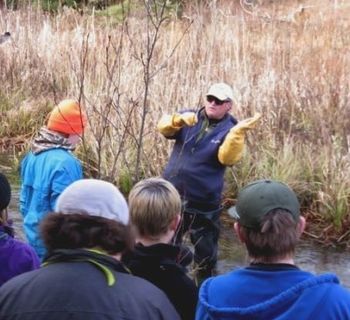
Board Member - Robert Florean
Bob started out working for the MNRF in 1975 as a Fire Crew member and expanded his experience in Forestry. He came to Espanola in 1999 as the Fish and Wildlife Technical Specialist and in his final years before he retired he worked as the Manitoulin Stewardship Coordinator.
After Bob retired, he started his own environmental consulting company, LaCloche Ecological Services and continued volunteering with many not-for-profit organizations (Manitoulin Streams, the United Walleye Club, Little Current Fish and Game Club etc.). Bob and his wife now reside in Espanola, Ontario.
Bob volunteers much of his time helping with funding applications, providing technical support and educating volunteers and youth to be future stewards of the land. Manitoulin Streams is a successful working entity today due to his efforts and vision he once had a long time ago. We are very happy to have Bob return as a board member.
Bob started out working for the MNRF in 1975 as a Fire Crew member and expanded his experience in Forestry. He came to Espanola in 1999 as the Fish and Wildlife Technical Specialist and in his final years before he retired he worked as the Manitoulin Stewardship Coordinator.
After Bob retired, he started his own environmental consulting company, LaCloche Ecological Services and continued volunteering with many not-for-profit organizations (Manitoulin Streams, the United Walleye Club, Little Current Fish and Game Club etc.). Bob and his wife now reside in Espanola, Ontario.
Bob volunteers much of his time helping with funding applications, providing technical support and educating volunteers and youth to be future stewards of the land. Manitoulin Streams is a successful working entity today due to his efforts and vision he once had a long time ago. We are very happy to have Bob return as a board member.
AWARDS
|
2016
Manitoulin Streams Improvement Association Receives Rainbow School Board Award The Manitoulin Streams Improvement Association restores water quality and the fisheries resource on Manitoulin Island and the Great Lakes that surround it. They meet their mandate through collaborative partnerships and education with local stakeholders. This powerful combination has led to a number of educational excursions for students. Students visit a local fish hatchery and learn the value of stocking streams to revitalize the natural aquatic ecosystem and enhance recreational fishing. They also tour rivers and creeks to learn about restoration and research. Manitoulin Streams offers in-school adventures as well, from GIS mapping, learning about invasive species to micro hatcheries where students raise brook trout to be released. Through these dynamic and authentic learning experiences, students gain an appreciation of the important role they play in protecting and preserving our natural resources. Accepting the award on behalf of Manitoulin Streams is Chair Ted Williamson and Co-ordinator Seija Deschenes. Thank you for being a partner in education. Congratulations! (From: The Rainbow School Board award site) |
2014
OFAH Larry Wallace Memorial Award
Bill Strain and the Little Current Fish and Game ClubThe Little Current Fish and Game Club, through partnerships with Manitoulin Streams, received the OFAH Larry Wallace Memorial Award as well as the Co-Curricular Program/Community Partnership Award for youth conservation education in the local Manitoulin Island communities.
OFAH Larry Wallace Memorial Award
Bill Strain and the Little Current Fish and Game ClubThe Little Current Fish and Game Club, through partnerships with Manitoulin Streams, received the OFAH Larry Wallace Memorial Award as well as the Co-Curricular Program/Community Partnership Award for youth conservation education in the local Manitoulin Island communities.
2013
Minister’s Award for Environmental Excellence 2013
2013
Premier’s Award for Agri-Food Innovation Excellence
2012
Canada’s Recreational Fisheries Award
2009
OFAH Mary Pickford Award
2008
"2008 Success Story of the Year" Bi-National State of the Lakes Ecosystem Conference (SOLEC) Award
"2008 Success Story of the Year" Bi-National State of the Lakes Ecosystem Conference (SOLEC) Award
Mission Statement and Objectives
To create, through the rehabilitation and enhancement of important cold water streams, healthy and self-sustaining river ecosystems that contribute to the ecological, economic and social health of Manitoulin Island and the Great Lakes that surround it.
Manitoulin Streams expects to achieve this vision by addressing the following objectives:
Four Goals Of The Association:
Manitoulin Streams expects to achieve this vision by addressing the following objectives:
- Protect, improve, enhance, create, promote and maintain high quality water resources, vital to all facets of life on Manitoulin Island and surrounding communities.
- Create community ownership for the health of the river ecosystems on Manitoulin Island and surrounding areas.
- Develop capacity within the Island population to assist in resource management programs.
- Access available resources that can support the proposed projects.
- Develop community awareness of the value of the cold water fishery on Manitoulin Island and surrounding Great Lakes.
- Develop community awareness of the benefit of water bodies and streams to other components of the ecosystem.
- Working in concert with the agricultural sector where/when necessary to promote and protect aquatic resources.
- Through proper ecosystem management, provide additional resource based opportunities such as improved sport fishing experiences, improved water quality, reduced threat of flooding and others on Manitoulin Island and surrounding communities.
Four Goals Of The Association:
- To Promote the improvement of fish and riparian habitat in the streams of Manitoulin Island.
- To Promote the improvement of water quality and watershed management in the streams of Manitoulin Island.
- To promote the enhancement of aquatic ecosystems in the streams of Manitoulin Island.
- To educate and promote public awareness of the aquatic ecosystems on Manitoulin Island.
2023 Annual General Meeting Presentation File
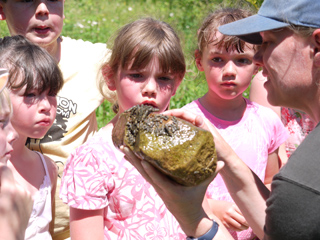
Manitoulin Streams has leveraged over $6.5 million in funding and completed 78 major projects on:
- Manitou River
- Blue Jay Creek
- Norton’s Creek
- Grimesthorpe Creek
- Mindemoya River
- Shrigley Creek
- Mill Creek
- Bass Lake Creek
- Smith's Bay Creek.
Manitoulin Streams Improvement Association is grass roots, a not-for -profit organization that is focused on large-scale, community based efforts to rehabilitate aquatic ecosystems on Manitoulin Island, in central Ontario. We bring the entire community together to do this via joint private and public driven initiatives. Our efforts rehabilitate and enhance water quality and the fisheries resource on Manitoulin Island and Lake Huron which is fed by the streams.
Manitoulin Island is the largest freshwater island in the world and is widely referred to as “the heart” of the Great Lakes. It contains 108 freshwater inland lakes, many of which in conjunction with its cold water springs, feed into Lake Huron, making it an extremely important spawning and rearing area for many species of salmon and trout. Manitoulin Streams has become an important model of rehabilitation in Canada and beyond.
We have conducted a Class Environmental Assessment covering 184 waterways on Manitoulin Island. This means that we have provincial and federal approval to rehabilitate these waterways. We have also created enhancement strategy documents for 5 of the top 10 streams in need of rehabilitation as outlined in our Island Wide Class Environmental Assessment of 184 streams. Enhancement strategies identify areas of concern with a high, medium or low priority and delineate the problems, size, solutions and estimated costs for rehabilitation.
Manitoulin Island is the largest freshwater island in the world and is widely referred to as “the heart” of the Great Lakes. It contains 108 freshwater inland lakes, many of which in conjunction with its cold water springs, feed into Lake Huron, making it an extremely important spawning and rearing area for many species of salmon and trout. Manitoulin Streams has become an important model of rehabilitation in Canada and beyond.
We have conducted a Class Environmental Assessment covering 184 waterways on Manitoulin Island. This means that we have provincial and federal approval to rehabilitate these waterways. We have also created enhancement strategy documents for 5 of the top 10 streams in need of rehabilitation as outlined in our Island Wide Class Environmental Assessment of 184 streams. Enhancement strategies identify areas of concern with a high, medium or low priority and delineate the problems, size, solutions and estimated costs for rehabilitation.


